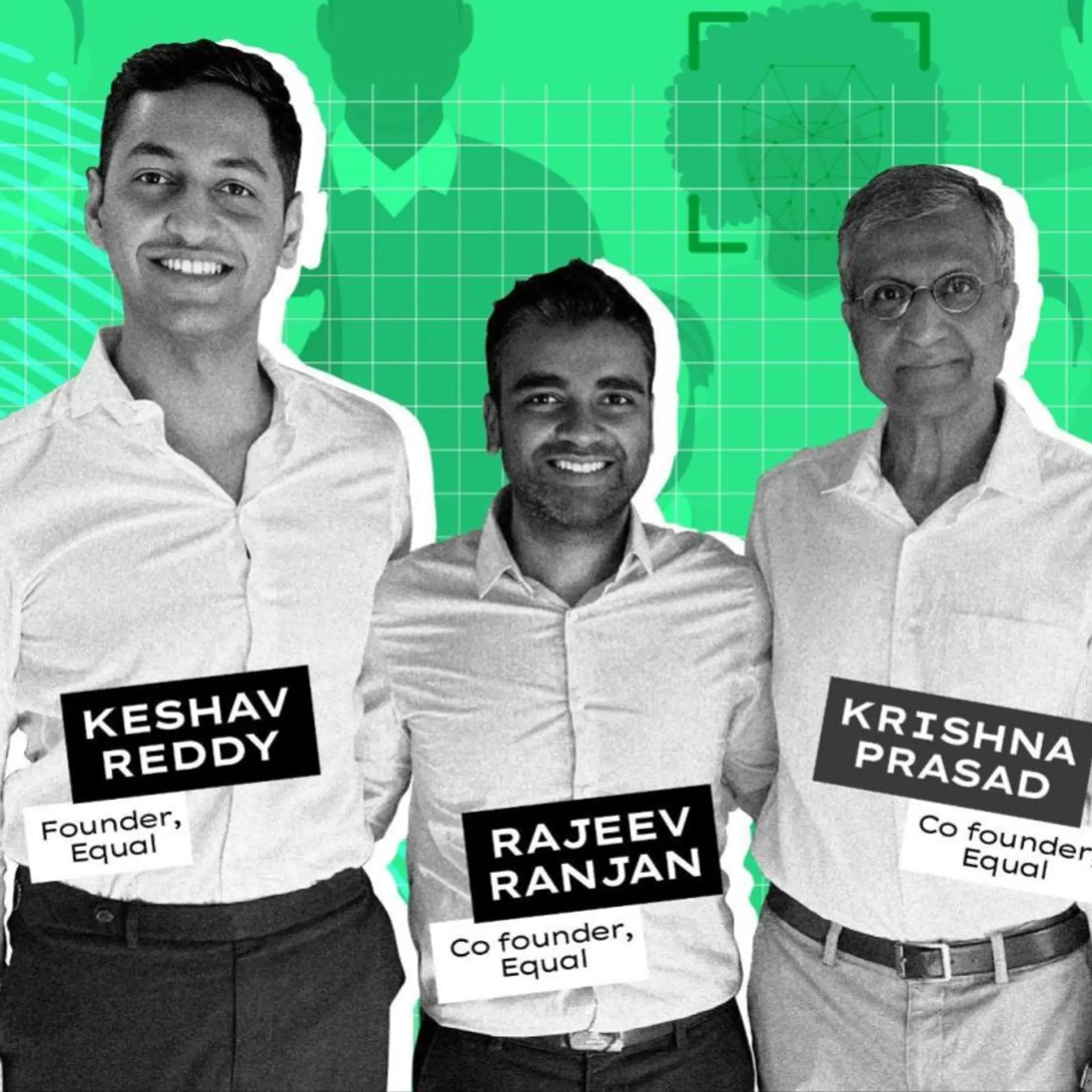This laundry startup aims to organise the hospital linen management space
Bengaluru-based bootstrapped laundry startup Sorterz provides washing, dry cleaning, and ironing services to hospitals and other institutional facilities. It is now targeting government and army hospitals, hotels, hostels, and Indian Railways.
Amidst the COVID-19 pandemic, Chandan Singh realised that healthcare facilities needed assistance and began researching startup opportunities. The tonnes of soiled linen that emerged from hospitals every day seemed like a solid problem statement, considering that he had started a laundry startup while at college.
A couple of months later, he gave up a well-paying job with JP Morgan Chase to launch Bengaluru-based laundry startup Sorterz.
Sorterz provides laundry services to institutions, hospitals, hotels, and households, using tech, equipment, and consumables to improve the experience and ensure quality.
“We provide laundry services to hospitals in an organised manner, adapting process flow, equipment, and consumables that are fabric-friendly as well as eco-friendly,” says Chandan, who channelled his personal savings into a facility on the outskirts of Bengaluru.
He says the laundry startup, which is working with top hospitals now, offers a very cost-effective washing solution for hotels, bus travels, restaurants, clinics, SPAs and hostels.
The first startup
While in Manipal in 2014, Chandan had launched Digital Dhobi, an online laundry startup for college students, with engineering batch mates Ashutosh Mishra and Snigdha Mishra. In 2015, the startup became official, and its name was changed to Digi Laundry for compliance reasons.
Chandan continued to be an active part of Digi Laundry, and graduated from college by 2015. He went on to work at the consultancy JP Morgan Chase as he “needed an income to supplement the startup”. During this time, he decided to do an executive MBA at Bengaluru’s Jain University to hone his business skills.
He kept juggling Digi Laundry, which is still operational, and JP Morgan Chase until 2020.

Sorterz Founder Chandan Singh
“During the pandemic, I got the idea for a medical laundry. I have always believed that the healthcare sector is an evergreen business, and it was my opportunity to look closely at its issues,” Chandan says.
He started approaching hospitals during this time and, while discussing issues and challenges with the administrations, realised that this problem existed at all medical facilities. That was the aha moment, and Chandan quit his job at JP Morgan Chase in July 2020 to start work on Sorterz.
The market need
Research showed Chandan that the market was unorganised with multiple small players, which offered the opportunity to create a scaled and organised laundry service.
“There is no reliable brand that promises hygiene, quality, and logistics. Hence, a few traditional brands enjoy monopolistic power. Hospitals want the same vendor pan-India to service chains across cities and provide an end-to-end solution,” he says.
“Onward and inward logistics is a labour-intensive and time-consuming problem, with the inventory inward time close to two hours,” he adds.
Chandan focused on building a reliable brand focused on quality and hygiene by using high quality machines for disinfection, stain removal, and steam processing. He also worked to build robust logistics by introducing RFID tech to reduce the inventory reception time from two hours to 10 minutes.
“It was important to standardise linen procurement and leasing to support hospitals with end-to-end linen management and grow our portfolio. I next worked to deploy a fleet of electric vehicles with overnight deliveries to minimise time and increase efficiency,” he says.
Continued focus on quality
Today, Sorterz adheres to strict protocols, and runs separate vehicles for soiled, general, and clean linen. All vehicles go through regular routine cleaning and sterilising processes. The staff is trained to high standards and frequently coached to ensure those standards are maintained.
“Where possible, we supply manpower at our client’s hospitals to ensure a seamless experience and ensure that they are fully stocked with clean linen and uniforms at all times. The total cost of building the setup, including all machines, was Rs 70 lakh and it took two months to start operations,” Chandan recalls.
Chandan did not divulge their charges, stating that prices vary basis the linens. However, he says the laundry startup has recorded a run rate of Rs 7.5 lakh per month from May 2021.
The sector and future
According to a report by Grandview Research, the global hospital linen supply and management services market size was valued at $8.4 billion in 2019 and would grow at a compounded annual growth rate (CAGR) of 6.3 percent between 2020 and 2027. In India, a Research and Markets report pegged the laundry market at $35.83 billion in 2020, growing at a CAGR of 4.96 percent.
Other players in the space include ImageFirst, CleanCare, MEDtegrity, and QuickClean.
But Sorterz doesn’t seem fazed by the competition. Its core clients include Apollo Hospital, Cloud Nine Hospital, Manipal Hospital, and Sagar Hospital.
“We are also in touch with Columbia Hospital, Aster, Rainbow Hospital, Fortis, Vikram, and Narayana Hospital to secure contracts on the condition that we will upgrade our current facility to 15 tonnes from the present two tonnes within three to four months.” The 14-member startup, currently bootstrapped, will need an investment of Rs 3 crore to upgrade its facility.
The laundry startup has signed an MOU with Skill India and Domestic Workers Sector Skill Council (DWSSC) for laundry segment under GOI. The team is training people to place them in the laundry industry.
Expanding to new cities is also part of the plan. “We are looking at Mumbai, Chennai, Delhi, and Hyderabad. We are in talks for Chennai and Goa. We are in discussion with Cloud 9, Manipal, and Apollo to expand to Delhi and other cities.”
“We also want to expand services to government and army hospitals and work with Indian Railways. We want to expand with linen leasing processes to ensure end-to-end linen control via tech enablement for performance optimisation and real-time tracking,” Chandan says.
Edited by Teja Lele











